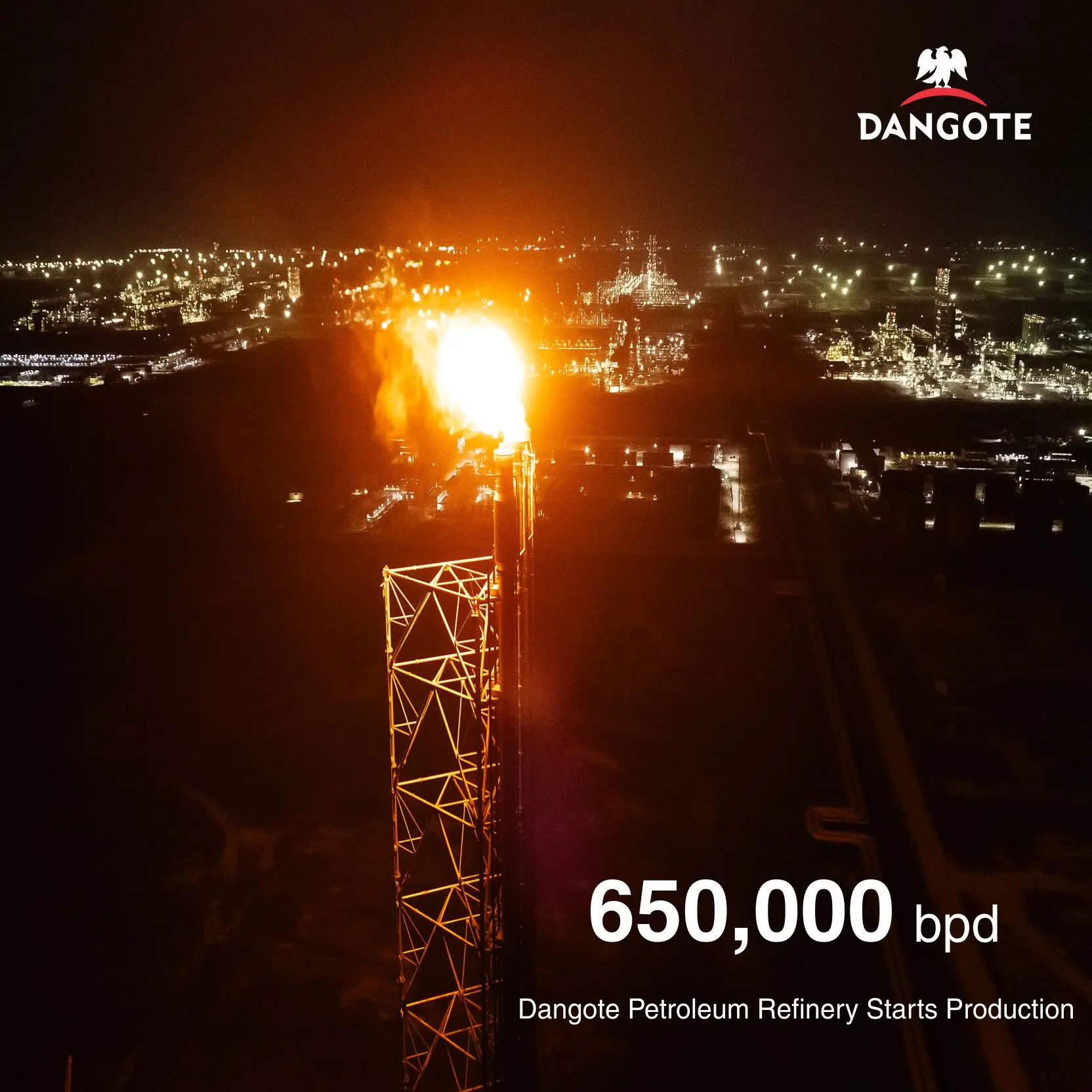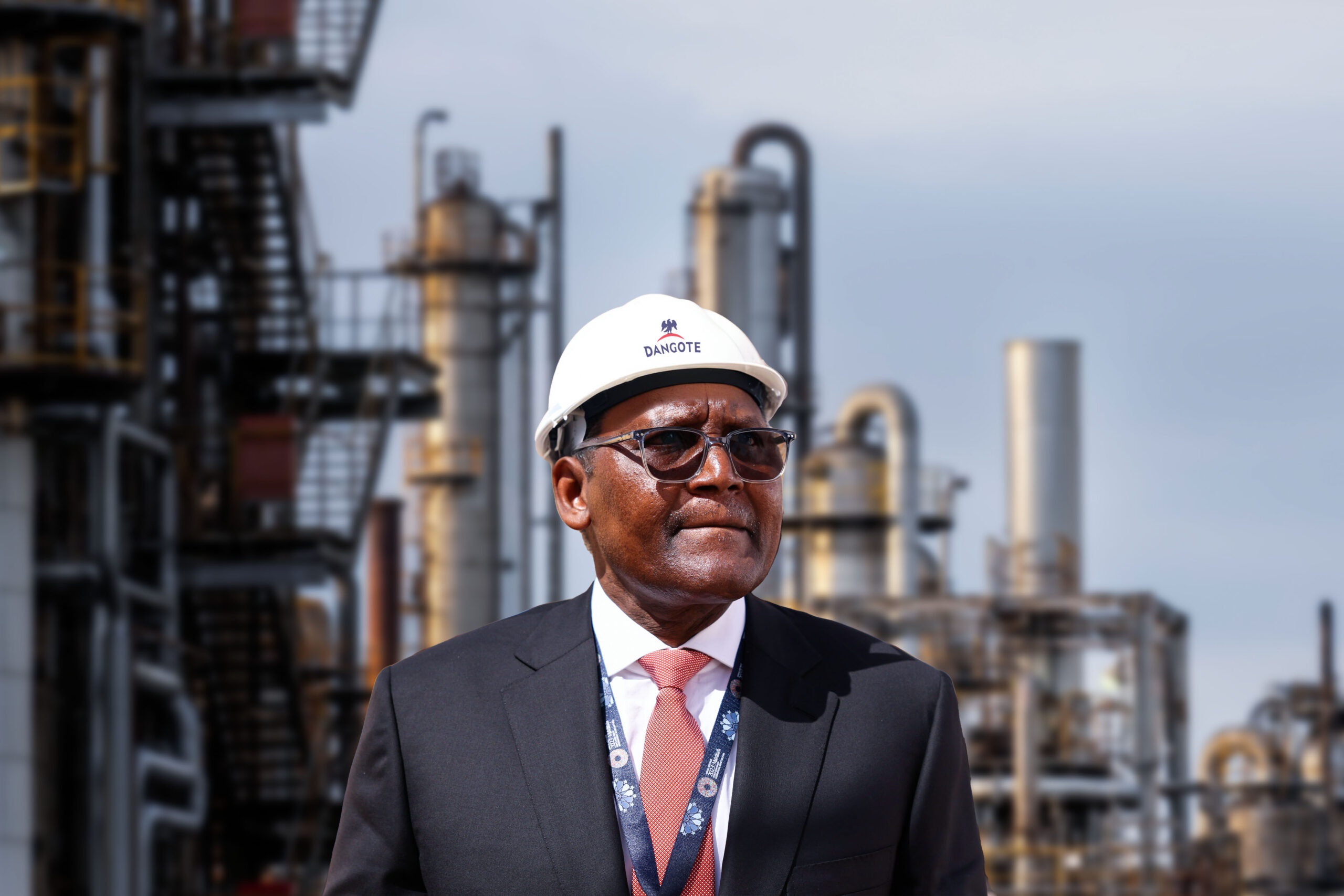Dangote Refinery: The Game-Changer In Africa's Energy Landscape
When it comes to energy production in Africa, Dangote Refinery is making waves like never before. This mega-project isn’t just another industrial venture; it’s a revolution that could transform the continent’s energy dynamics. As the largest refinery in Africa, it promises to reshape the oil and gas industry while addressing some of the most pressing challenges faced by the region. So, buckle up as we dive deep into the world of Dangote Refinery and uncover its potential to change the game!
Imagine a facility so massive that it could process over 650,000 barrels of crude oil per day. That's the scale we're talking about with the Dangote Refinery. But it's not just about numbers; it's about impact. This refinery isn't just about producing fuel; it's about creating jobs, reducing imports, and boosting the economy. It's a testament to what can be achieved when vision meets execution.
Now, before we get into the nitty-gritty, let’s set the stage. The Dangote Refinery isn’t just another project on paper. It’s a real, tangible effort to bring Africa into the forefront of global energy production. Located in Lagos, Nigeria, this refinery is part of the larger Dangote Industrial Complex, which includes other key industries like fertilizers and cement. Ready to learn more? Let’s go!
- Cascade Commercial Actors Get Started Facts You Didnt Know
- Sebastin Rulli From Argentina To Mexican Stardom
Understanding the Dangote Refinery: A Quick Overview
Let’s start with the basics. The Dangote Refinery is a $19 billion project spearheaded by Africa’s richest man, Aliko Dangote. This refinery aims to reduce Nigeria’s reliance on imported petroleum products and boost local production. It’s not just about refining oil; it’s about changing the narrative around energy independence in Africa.
Here’s a quick snapshot of what makes the Dangote Refinery stand out:
- Capacity to process 650,000 barrels of crude oil daily.
- Expected to produce various petroleum products, including gasoline, diesel, and jet fuel.
- Designed to cater to both domestic and export markets.
But what makes this refinery truly special is its potential to address some of Nigeria’s longstanding energy issues. By producing high-quality petroleum products locally, it could significantly reduce the country’s dependence on imports, saving billions of dollars annually.
- The Untold Story Of Jonathan Frid Dark Shadows More
- Kayo Anime News Fashion Community Whats Happening
Why the Dangote Refinery Matters
Now, you might be wondering, why all the fuss about this refinery? Well, here’s the deal. Nigeria, despite being one of the largest oil producers in Africa, still imports a significant portion of its refined petroleum products. This paradox has been a thorn in the side of the Nigerian economy for years. Enter the Dangote Refinery, which promises to flip the script.
By producing enough fuel to meet local demand and even export surplus, the refinery could:
- Boost the country’s GDP by generating billions in revenue.
- Create thousands of jobs, both directly and indirectly.
- Reduce the foreign exchange spent on importing refined products.
And that’s just the tip of the iceberg. The economic ripple effects of this project could be felt across the continent, positioning Nigeria as a key player in the global energy market.
The Vision Behind the Dangote Refinery
Aliko Dangote, the mastermind behind this ambitious project, had a clear vision in mind. He saw an opportunity to transform Nigeria’s energy landscape and create a sustainable future for the country. The refinery is part of a larger strategy to diversify Nigeria’s economy and reduce its reliance on oil exports.
According to Dangote, the refinery isn’t just about profits; it’s about making a difference. "We want to ensure that Nigeria can produce its own fuel and stop spending billions of dollars on imports," he once said. And that’s exactly what this refinery aims to achieve.
The Economic Impact of Dangote Refinery
When it comes to economic impact, the Dangote Refinery is a game-changer. Let’s break it down:
Firstly, the refinery is expected to create thousands of jobs during its construction and operation phases. This is a big deal in a country where unemployment remains a significant challenge. From engineers to laborers, the project has already provided employment opportunities for thousands of Nigerians.
Secondly, by reducing the need for imported fuel, the refinery could save Nigeria billions of dollars in foreign exchange. This money could then be reinvested into other critical sectors like healthcare, education, and infrastructure.
Lastly, the refinery’s export potential could further boost Nigeria’s economy. With the ability to produce surplus fuel, Nigeria could become a major player in the global energy market, attracting foreign investments and partnerships.
Addressing Energy Challenges in Nigeria
Nigeria’s energy sector has long been plagued by challenges such as inadequate refining capacity, frequent fuel shortages, and high costs of imported products. The Dangote Refinery aims to tackle these issues head-on.
By producing high-quality petroleum products locally, the refinery could:
- Stabilize fuel prices and reduce volatility in the market.
- Ensure a consistent supply of fuel, minimizing shortages.
- Improve the quality of petroleum products available in the market.
This could lead to significant improvements in the lives of ordinary Nigerians, who often bear the brunt of energy-related challenges.
Environmental Considerations
Of course, no industrial project of this magnitude comes without environmental concerns. The Dangote Refinery has faced criticism over its potential impact on the environment. However, the project team has taken several measures to address these concerns.
For starters, the refinery is designed to meet international environmental standards. It incorporates advanced technologies to minimize emissions and reduce its carbon footprint. Additionally, the project includes plans for waste management and water treatment to ensure minimal environmental impact.
While some critics remain skeptical, the Dangote Group has been transparent about its commitment to environmental sustainability. "We are determined to ensure that this refinery operates in an environmentally friendly manner," said a spokesperson for the company.
Sustainability in Action
To further demonstrate its commitment to sustainability, the Dangote Refinery is exploring renewable energy options. The project includes plans to incorporate solar and wind energy into its operations, reducing its reliance on fossil fuels.
Moreover, the refinery’s location in Lagos was chosen with environmental considerations in mind. By situating the facility near existing industrial zones, the project minimizes its impact on surrounding ecosystems.
Technological Innovations at Dangote Refinery
One of the standout features of the Dangote Refinery is its use of cutting-edge technology. This isn’t just another refinery; it’s a showcase of modern engineering and innovation.
Here are some of the key technological highlights:
- State-of-the-art refining processes that maximize efficiency and output.
- Advanced pollution control systems to minimize environmental impact.
- Integration of digital technologies for real-time monitoring and control.
These innovations not only enhance the refinery’s performance but also set a benchmark for future industrial projects in Africa.
Setting New Standards
The Dangote Refinery isn’t just about producing fuel; it’s about setting new standards for industrial projects in Africa. By incorporating the latest technologies and best practices, the refinery demonstrates what can be achieved when innovation meets ambition.
This approach could inspire other African countries to invest in similar projects, fostering a culture of innovation and progress across the continent.
Challenges and Controversies
No major project comes without its share of challenges, and the Dangote Refinery is no exception. From delays and cost overruns to environmental concerns, the project has faced its fair share of hurdles.
One of the biggest challenges has been ensuring timely completion of the refinery. Delays in construction have raised concerns about the project’s viability and its ability to deliver on its promises. However, the Dangote Group has remained optimistic, stating that the refinery is on track to become fully operational soon.
Additionally, there have been criticisms regarding the project’s environmental impact and its potential to disrupt local communities. While the company has taken steps to address these concerns, some critics remain unconvinced.
Overcoming Obstacles
Despite these challenges, the Dangote Group has shown resilience and determination. By engaging with stakeholders, addressing concerns, and implementing best practices, the company is working to ensure the project’s success.
As the refinery moves closer to full operation, the focus is on delivering results that align with its ambitious goals. This includes producing high-quality petroleum products, creating jobs, and contributing to Nigeria’s economic growth.
Global Implications
The Dangote Refinery’s impact isn’t limited to Nigeria or even Africa. Its success could have far-reaching implications for the global energy market. By producing surplus fuel for export, Nigeria could become a key player in the international energy landscape.
Moreover, the refinery’s use of advanced technologies and sustainable practices could set a precedent for other industrial projects around the world. It demonstrates that large-scale industrial ventures can be both profitable and environmentally responsible.
As the global energy market evolves, the Dangote Refinery could play a crucial role in shaping its future. By providing a model for sustainable industrial development, it could inspire similar projects in other regions.
A New Era for Energy Production
With the Dangote Refinery, we’re witnessing the dawn of a new era in energy production. This isn’t just about refining oil; it’s about transforming the way we think about energy. By combining innovation, sustainability, and economic impact, the refinery sets a new standard for industrial projects.
As the world grapples with the challenges of climate change and energy security, the lessons learned from the Dangote Refinery could prove invaluable. It shows that with the right vision and execution, even the most ambitious projects can become a reality.
Conclusion: The Future of Dangote Refinery
In conclusion, the Dangote Refinery represents a significant milestone in Africa’s energy journey. With its capacity to produce over 650,000 barrels of crude oil daily, it has the potential to transform Nigeria’s economy and energy landscape. By addressing key challenges such as energy independence, job creation, and environmental sustainability, the refinery could set a new benchmark for industrial projects in Africa and beyond.
As the refinery moves closer to full operation, the focus remains on delivering results that align with its ambitious goals. Whether it’s producing high-quality petroleum products, creating jobs, or contributing to economic growth, the Dangote Refinery is poised to make a lasting impact.
So, what’s next? Keep an eye on this space as the Dangote Refinery continues to shape the future of energy production in Africa. And don’t forget to share your thoughts in the comments below or explore more articles on our site for insights into other groundbreaking projects. Let’s keep the conversation going!
- 1988 Chinese Zodiac Earth Dragon Traits Horoscope Insights
- Cancer Man Leo Woman Compatibility A Love Match Guide

All about Dangote Refinery on Behance

Dangote refinery begins fuel production Converseer

Dangote Dismisses Claims Refinery Products are Inferior